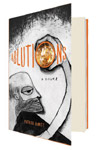The protagonist of Ablutions works as a barback but spends most of his shift downing whiskey, popping pills, and sampling cocaine. Then, at the end of the night, after listening to the delusional ramblings of the regulars and rinsing a few glasses, he drives home fucked up. Then he wakes up and vomits “on the porcelain of the toilet” so his wife won’t hear. Then, on the night his manager is prognosticated to be murdered (long story), he watches, “much in the way one watches gory surgery on television,” a group of his coworkers and customers work a pair of prostitutes “like plow horses.” That takes us to page fifty-three. The drinking, drug-taking, and decline have only just begun.
Since the novel is set in a seedy Los Angeles bar and describes the ravaging possibility of the protagonist’s severe alcoholism, one may be tempted to dismiss Patrick deWitt’s Ablutions as nothing more than another in a litany of imitators of Charles Bukowski’s spare, romanticized, and insistent oeuvre. But Ablutions is much more ambitious and successful than that. DeWitt employs an inventive, layered style of storytelling that is as self-aware and stylized as it is propulsive and unaffected, that is as heartbreaking as it is hilarious.
The subtitle is Notes for a Novel, and that’s what it is. “Discuss the regulars,” instructs the imperative first sentence. In the second sentence, he does: “They sit in a line like ugly, huddled birds, eyes wet with alcohol.” In the third sentence, he introduces “you,” the protagonist: “They whisper into their cups and seem to be gloating about something—you will never know what.” As effortlessly and as simply as that, deWitt creates a new point of view. “You” is simultaneously the author, the narrator, the protagonist, and the reader. The narrator is writing instructions to himself and descriptions for use later—we just happen to be reading over his shoulder.
The pretense that this novel is just notes for another one not only strengthens the autobiographical assumption that’s inherent to accounts of addiction, it also equates “you” (e.g., the reader) both with this dangerous barman and with the author who ostensibly is his real-life double.
“Your plan is to keep an at-home stolen-monies pile, separate from your life-monies pile, and to cultivate it to a respectable size and then, at some key point, utilize it dramatically.” You aren’t sitting...
You have reached your article limit
Sign up for a digital subscription and continue reading all new issues, plus our entire archives, for just $1.50/month.
Already a subscriber? Sign in





